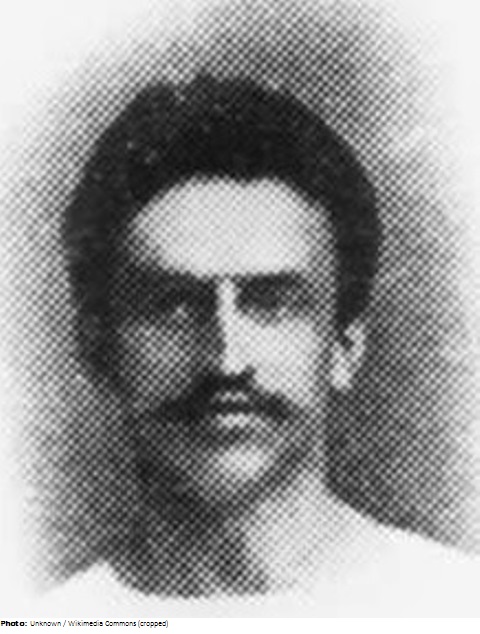Gustav Flatow was less gifted as a gymnast than his older cousin Alfred, but was also an active cyclist. At the 1896 Olympics, he likely served as a pace maker in some of the track cycling events. In his own events, he won two titles with the German team, but failed to achieve top performances individually. After their return home, most team participants were excluded from the reactionary German Gymnastics Association as they were “involved in a sporting event dedicated to internationalism.” The winning teams were banned from national competitions in Berlin.
A Jew, Flatow left Germany for the Netherlands shortly after Hitler’s appointment as chancellor in 1933. Even after the German occupation of his new home country, he went undetected for long. He was eventually captured on New Year’s Eve 1943 and – despite protests of various Dutch and German sports officials (including fellow 1896 Olympian Kurt Doerry) – deported to the Theresienstadt concentration camp. He died there a little more than a year later. Since 1987, the German Gymnastics Federation awards the Flatow Medal, remembering both Alfred and Gustav, to be awarded for excellent all-around performances.

 Germany
Germany GER
GER GER
GER GER
GER